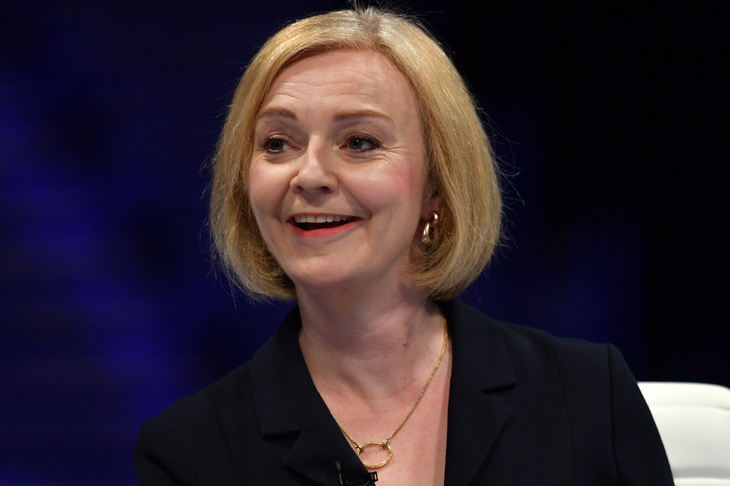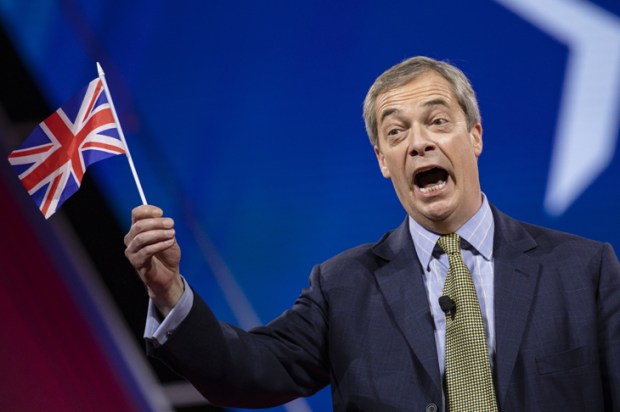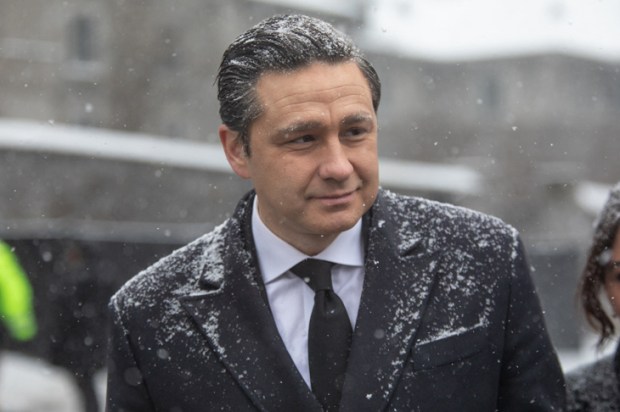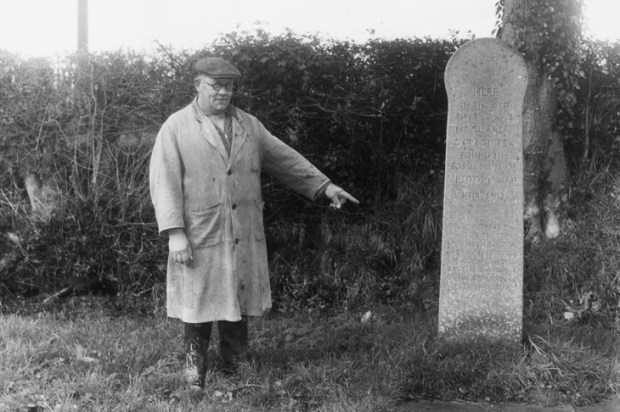Britain is the motherland of eccentricity – Cambridge’s May Week in June, elections on Thursdays, carpeted bathrooms and the Duke of Devonshire’s seat in Derbyshire. But surely among the oddest quirks is the way the Conservative party goes about choosing a new leader. In what is a gift to its opponents, the candidates spend months publicly tearing into erstwhile colleagues, as if they were from opposing parties, to win over party members. Their Australian cousins, the Liberals, are probably more brutal at defenestrating leaders at the first whiff of bad polling. But, with the choice of a replacement in the hands of parliamentary members, at least the Oz-style installation of a new leader is fast, with less public blood-letting.
After two long months of mud-slinging since Boris Johnson announced he’d be stepping down, polling shows that on 5 September foreign secretary Liz Truss will almost certainly be crowned as the Conservatives’ fourth prime minister since 2010 and their third woman prime minister. The Tories are inclined to take a punt on Truss because she’s committed to immediate tax cuts and has persuaded them she’ll move the government in a more identifiably conservative direction. Ex-chancellor Rishi Sunak by contrast misjudged the national mood by coming across as the continuity candidate, dismissing Truss’s tax cut promises as ‘fantasy economics’. He’s presided over the highest tax burden since the Attlee government. Another big negative for many is that he’s even more of a net-zero zealot than Johnson. Last year he proposed green taxes on fuel and he’s vehemently opposed Truss’s plan to cut green taxes on energy bills. He’s said higher energy prices are ‘something we will have to get used to’. In the last budget he brought in eco-taxes on long-haul flights.
The top-of-mind issue for the 180,000 Conservative members is the terrifying rise in energy bills, which, unless drastic action is taken, risks impoverishing half the country. The current annual average energy bill (for gas and electricity) of £1,971 nearly doubles in October to £3,600 and is expected to triple in April to £6,000. Other economic indicators are equally dire: inflation will probably hit 18 per cent by the beginning of next year, fueling even more industrial unrest for pay rises; and a recession is expected to start later this year.
When the leadership tussle with Sunak began, Truss faced apparent handicaps. She was the uncharismatic Remainer facing the polished Brexiteer. Embarrassing videos appeared of Truss in her university days being an anti-monarchy lefty. But her public presentations have improved and she’s skilfully harnessed her Thatcherite outsider background (she grew up outside the South and went to a comprehensive school), together with her agenda for change, to cast herself as the Tories’ best hope for retaining the support of the former Labour ‘Red Wall’ voters and winning the general election due by the end of 2024.
Truss has pledged to reverse the recent 1.25 per cent increase in National Insurance payments, to cancel the planned increase in corporate taxation from 19 to 25 per cent and to suspend Green levies on energy bills, reducing them by about 8 per cent. These measures would be on top of the up to £1,050 in support for 8 million households from October already in the pipeline. If selected, Truss would probably go further, with a cut to VAT and possibly other measures including income tax cuts and a cap on energy bills. ‘She wouldn’t accept that people need to put up with rising bills,’ a Truss campaign source says.
How convincing is Truss’s pitch that she’ll shift away from the Johnson soft-left-Green agenda back to more familiar Tory territory? Conservatives will debate whether her tax cutting agenda makes sense if that means higher debt. But she’s on stronger Tory ground on other issues: overturning Johnson’s ban on fracking and, effectively, on North Sea gas and oil projects; tough legal action to end the cross-Channel illegal immigration chaos; raising doubts about the net-zero 2050 commitment by saying it mustn’t mean ‘clobbering consumers and businesses’; increasing the defence budget from the current 2.1 per cent of GDP to 3 per cent by 2030; withdrawing from the ludicrous Northern Ireland Protocol which means an internal UK trade border; and an end to the ban on new grammar schools.
Supporting optimism that Truss might genuinely mean change are the key players in the team she’s trying to recruit. Most importantly, ex-Brexit negotiator Lord David Frost, Johnson’s most vocal Conservative critic, is her choice to run the government nerve-centre, the Cabinet Office. Remarkably for a UK government insider, Frost has opened up a full-on assault against the climate change consensus, saying there’s no climate ‘emergency’ and hitting out at the ‘establishment’s failure’ of ‘criminally negligent’ energy policy. Those responsible for current policies must be ‘swept away’, he recently wrote in the Daily Telegraph.
Truss’s preferences for other key appointments also point to her enthusiasm for radical change. Attorney-General Suella Braverman, who advocates withdrawing Britain from the European Convention on Human Rights to stop the cross-Channel boats, would probably take over as Home Secretary. Kemi Badenoch, the most refreshingly anti-woke of the candidates to replace Johnson, would also be given a Cabinet role. High-profile figures from the Tory right who were shunned under Johnson – former party leader Iain Duncan-Smith and John Redwood – would return to the inner circle.
Still, several net-zero 2050 fundamentalists also look set to be on Truss’s team, including Kwasi Kwarteng and Simon Clarke, expected respectively to be the Chancellor and Secretary of State for Business, Energy and Industrial Strategy. And Britain’s woke bureaucracy would, true to form, endeavour to thwart any attempts by a Tory government to implement conservative policies.
After the huge disappointment of Boris Johnson and his wet predecessors, it’s hard to be unreservedly optimistic about any new prime minister the Tories come up with. Still, Truss is likely at least to be an improvement on Johnson and, especially if David Frost is central to her team, could conceivably run the first genuinely conservative government since Thatcher. For that she should expect as much hysterical criticism from her own side – including from the aggrieved Johnson, who probably dreams of a second coming – as from Labour.
Got something to add? Join the discussion and comment below.
Get 10 issues for just $10
Subscribe to The Spectator Australia today for the next 10 magazine issues, plus full online access, for just $10.
Mark Higgie is on Twitter at @markhiggie1
You might disagree with half of it, but you’ll enjoy reading all of it. Try your first month for free, then just $2 a week for the remainder of your first year.














Comments
Don't miss out
Join the conversation with other Spectator Australia readers. Subscribe to leave a comment.
SUBSCRIBEAlready a subscriber? Log in